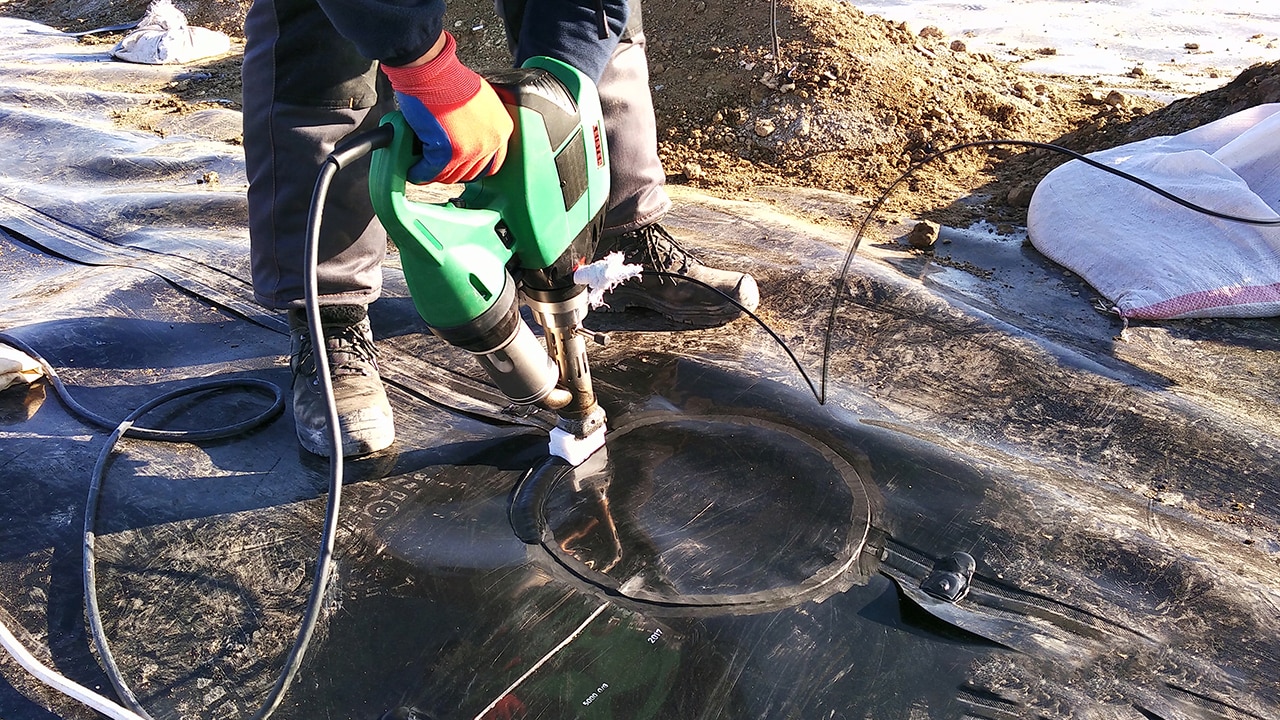Geomembranes Welded for Large Tailings Ponds in Kazakhstan
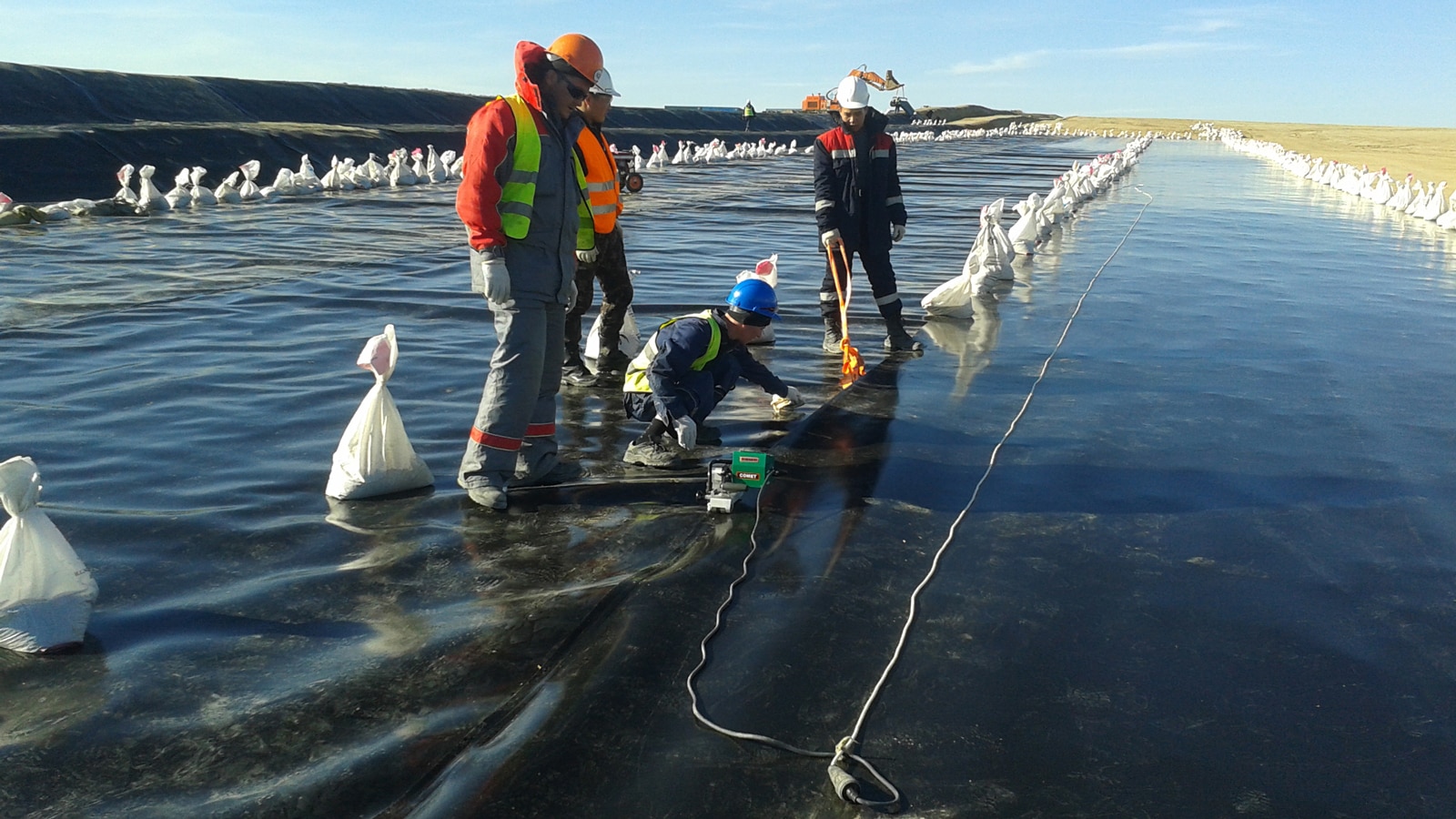
The successful Leister distributor, RIKAZ, sells Leister equipment for plastic welding in Kazakhstan. In this blog post, we discuss how Leister’s automatic welding machines are used to weld the geomembranes on large gold mine, tailings ponds. Tight weld seams are also crucial here to ensure that no contaminated water enters into the soil or groundwater.
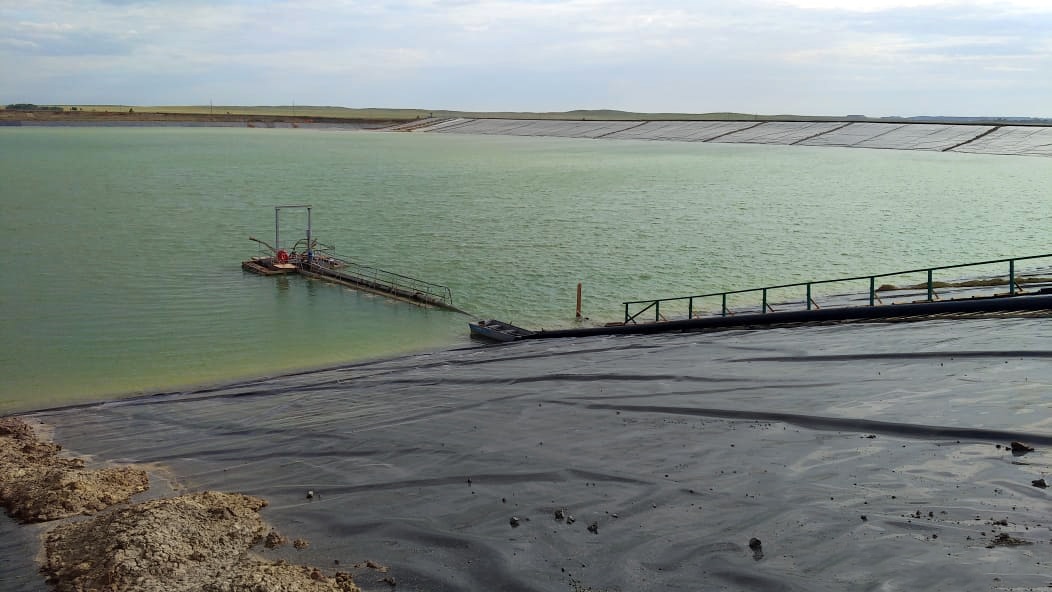
When large tailings ponds were to be built for gold mines near Aksu, Zholyimbet and Bestobe, RIKAZ received an order from Kazakhaltyn to seal them with geomembranes. This was a major order: The total area of the tailings ponds was approximately 150 ha/370.66 ac. In addition to the sale and delivery of the required Leister equipment and massive quantities of geomembranes, the contract also included laying and welding the geomembranes.
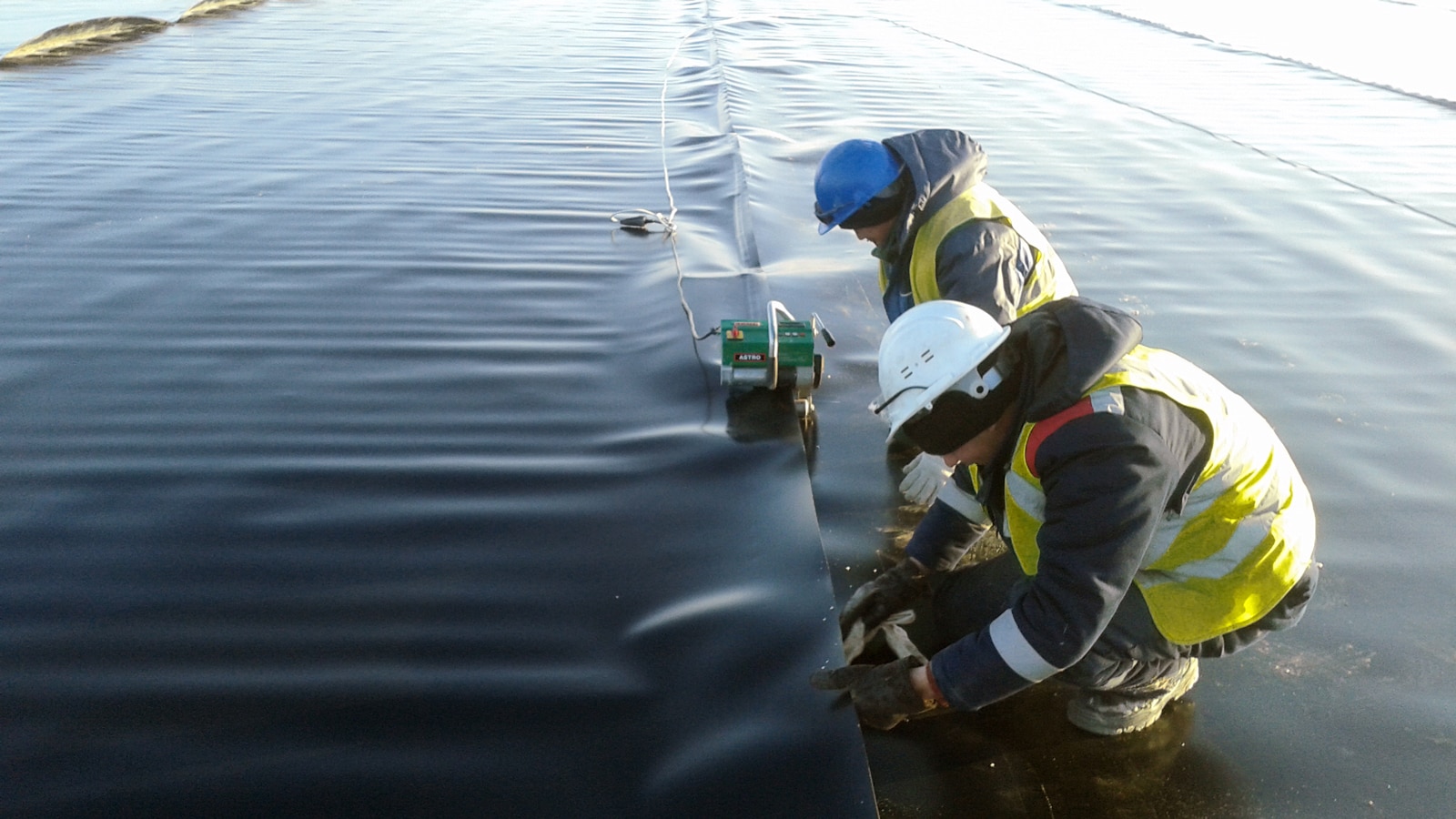
The geomembranes used were 1-2 mm (or 39-79 mil thick) AGRU brand material. The geomembranes were mainly overlap welds with the Leister’s GEOSTAR G7 automatic welding machine. The GEOSTAR G7 is equipped with the Leister Quality System (LQS for short) where important welding parameters like speed, temperature and joining force, as well as the geographical coordinates of the weld, are seamlessly recorded via GPS and documented in a log. This means that RIKAZ can provide proof of the weld quality.
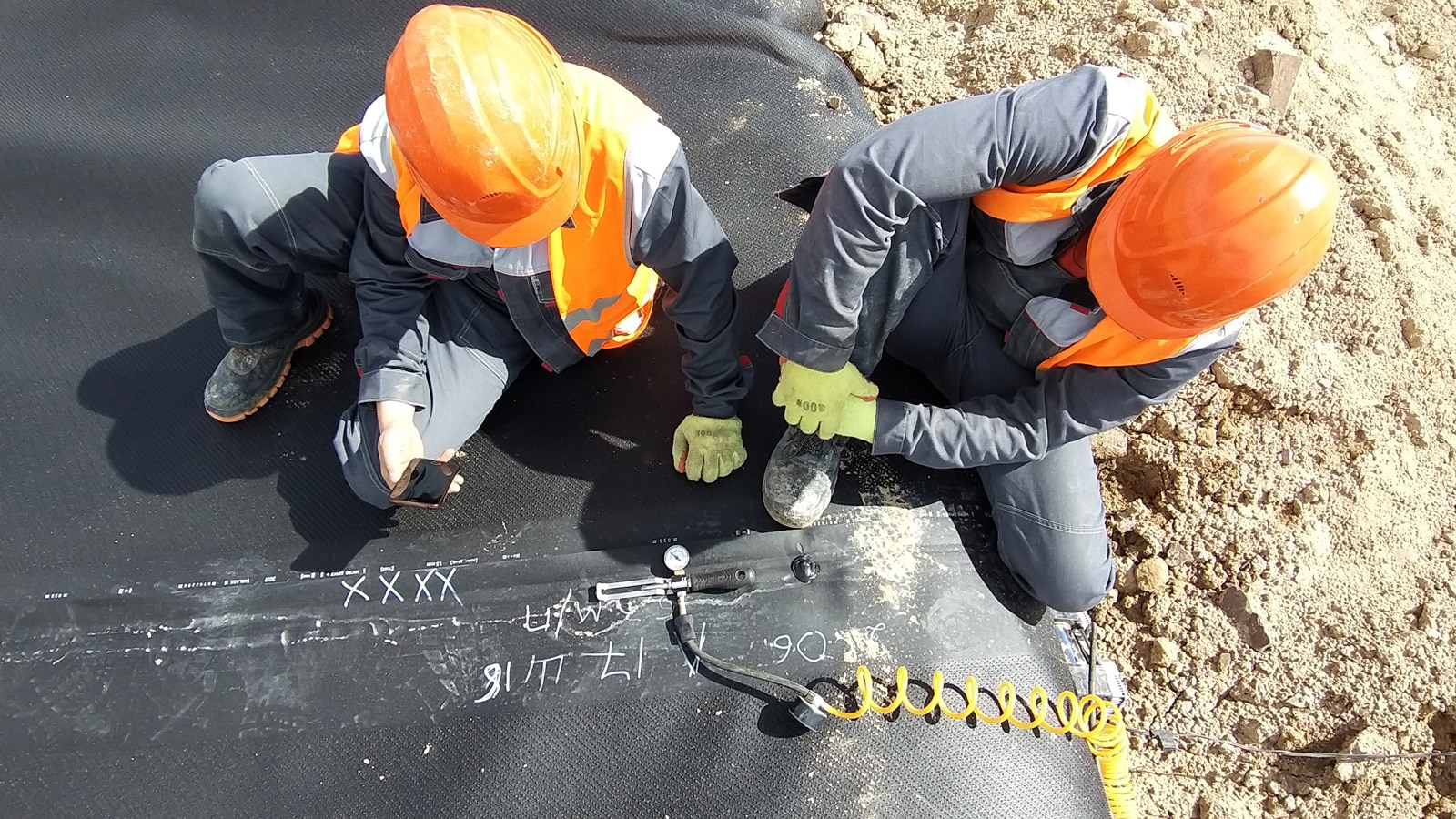
This creates a test channel. This is filled with air after welding in order to check and guarantee the tightness of the weld seam with the Leister compressed air tester.
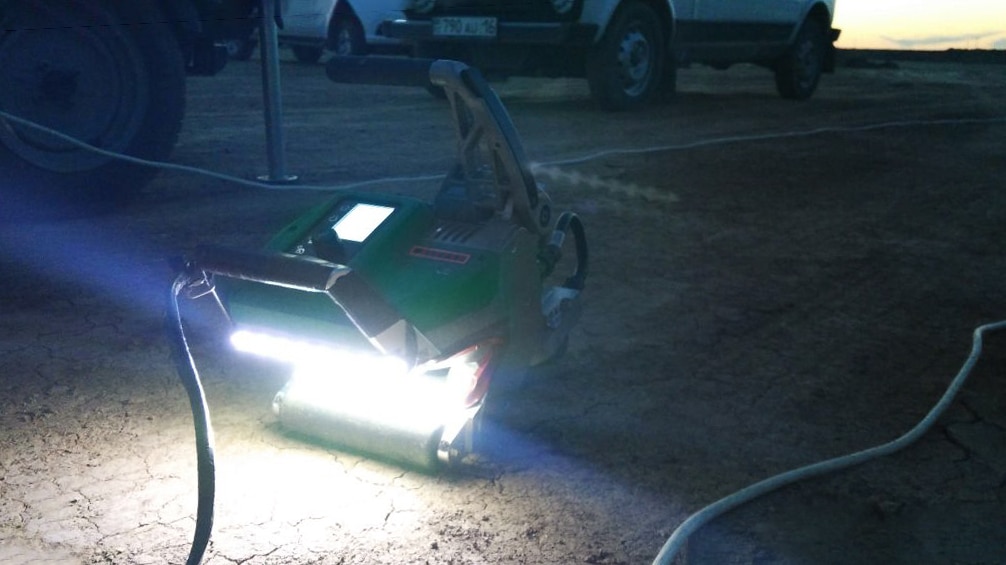
In order to ensure a long-term, tightly weld seam, most of the welding work has to be completed at night during the summer. For this purpose, the GEOSTAR automatic welding machines had to be provisionally equipped with special LED lamps, which illuminated the welding zone in the dark.
